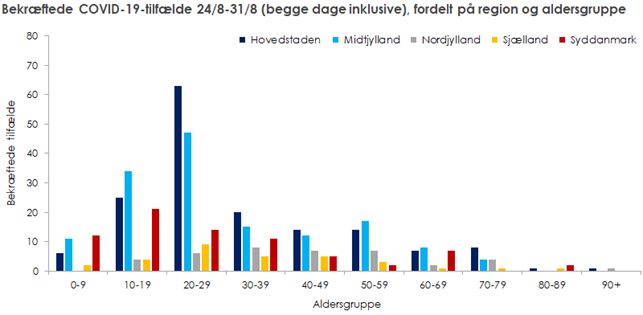News
Young people disproportionately represented in coronavirus cases
This article is more than 5 years old.
Almost half of cases registered nationwide over the last seven days involved people aged 10-29

Taking it a little too lightly? (photo: Pixabay)
According to new figures from the State Serum Institute, people aged 10-29 are disproportionately represented in new confirmed coronavirus cases.
The figures showed that the age group accounted for 46 percent of all new cases over the past week, despite only making up 25 percent of the population.
Meanwhile, people over the age of 60 accounted for just 13 percent of the cases, despite making up 26 percent of the population.
READ ALSO: Denmark more social than most in the face of the coronavirus epidemic
Inner city blues
Taking a closer look locally, about 39 percent of the new cases in Copenhagen were people aged 20-29.
That figure was 33 percent in Aarhus, even though the age group represents 25 percent of the population in Denmark’s two biggest cities.
The figures also revealed that the capital and mid-Jutland regions had the highest frequency of people with COVID-19.
Both regions saw rates of about 12 cases per 100,000 people, while other regions average 9 cases per 100,000.











































